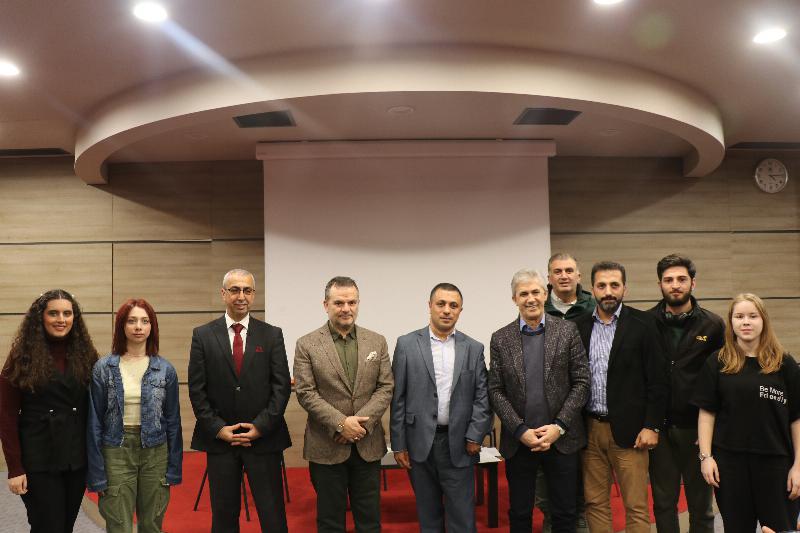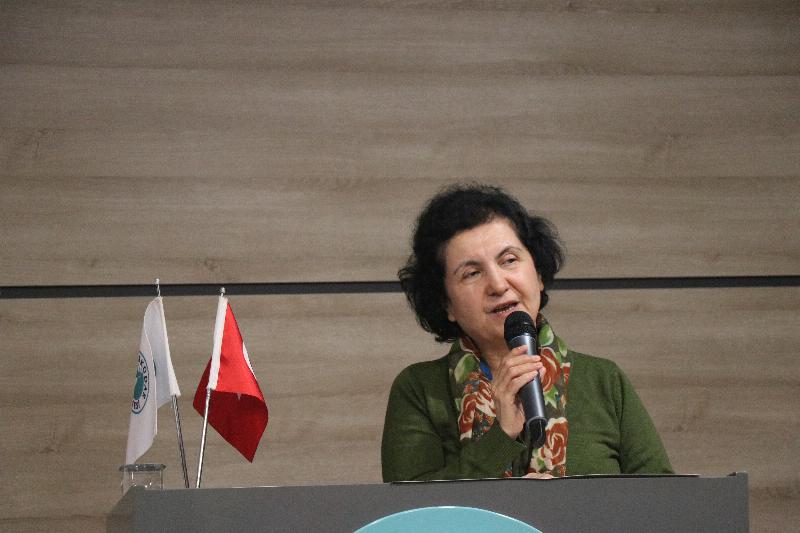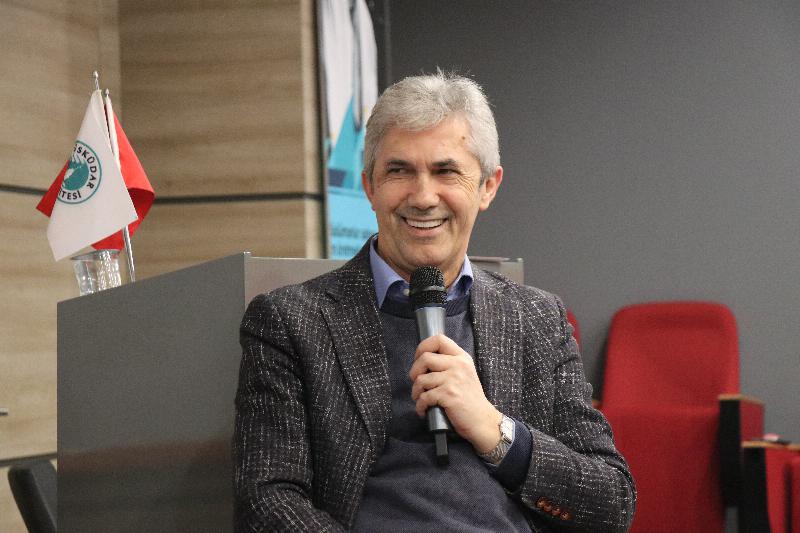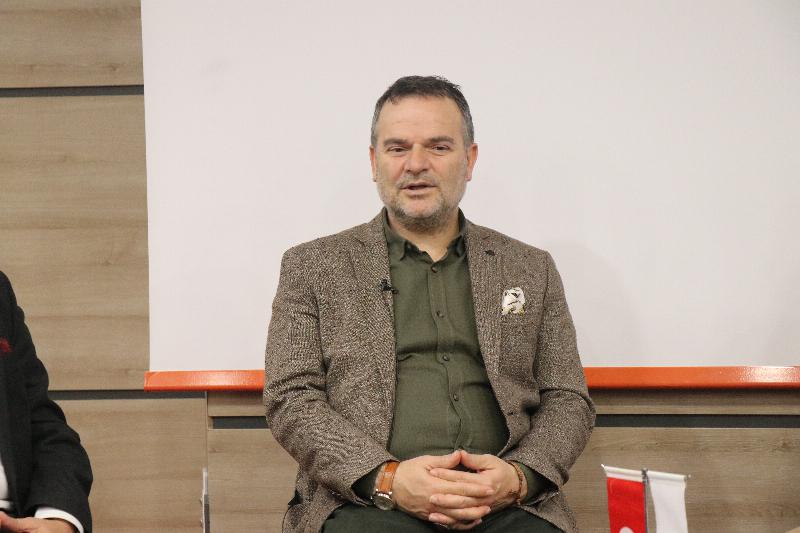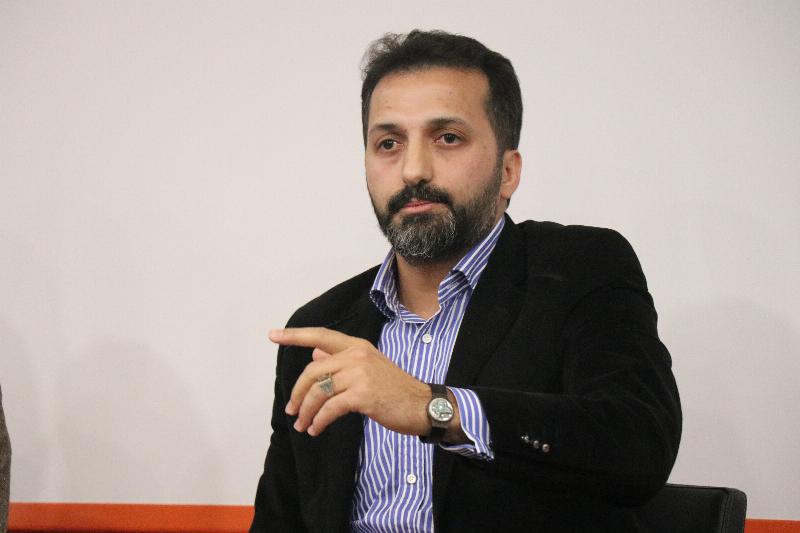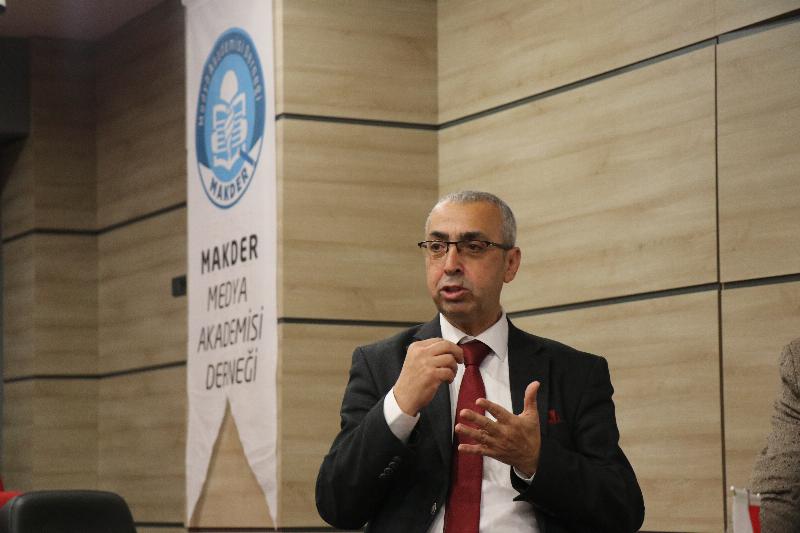Journalists gathered at the 'Traditional to Digital Journalism’ panel
Üsküdar University Faculty of Communication Journalism Club held the "Traditional to Digital Journalism" panel in the Fuat Sezgin Conference Hall at the South Campus. Former Anadolu Agency Chairman of the Board of Directors and Habertürk Newspaper writer Kemal Öztürk, Milat Newspaper Economy Manager and Media Academy Association Vice President Fırat İpek, Former National Media correspondent and the editor-in-chief of Yenibirgazete.com online newspaper, İsmail Polat participated in the panel.
In the panel held under the moderatorship of Üsküdar University Communication Faculty Journalism Department Head Prof. Süleyman İrvan, Dean of the Faculty of Communication Prof. Dr. Nazife Güngör made opening remarks.
Kemal Öztürk, Former Chairman of Anadolu Agency and Habertürk Newspaper writer, Fırat İpek, Milat Newspaper Economy Manager and Media Academy Association Vice President, Former National Media correspondent and Yenibirgazete.com online newspaper's editor-in-chief, İsmail Polat participated in the panel as guests.
Prof. Nazife Güngör: “Our journalism students should be able to set forth their dreams in a more idealistic way”
Starting her speech by celebrating the Journalists' Day on January 10, Dean of the Faculty of Communication Prof. Nazife Güngör said, “I hope we, as Türkiye, as the world, move towards better days, towards a brighter future, and journalists can really do their job. We will reach the point where our journalists can do their jobs. Therefore, our Journalism students will be able to set forth their dreams in a more idealistic way and grow up as educated, intellectuals and professionals who can express their thoughts freely, can produce, and have a strong pen.”.
Prof. Süleyman İrvan: “Democracy is the oxygen of free press and journalism while free journalism is the oxygen of democracy.”
Stating that the students who graduated from the Faculty of Communication have difficulty in finding a job, and offering a solution to this issue, Head of Journalism Department Prof. Dr. Süleyman İrvan said, “In my opinion, anyone who has a press job, regardless of the medium in which they work and whose main source of livelihood is journalism should be considered a journalist. There is a serious unemployment of journalists in Türkiye, especially those who graduated from communication faculties have difficulty in finding a job in the field of journalism. In the evaluation we made with the Press and Broadcasting Institution at the solution point of this problem, I suggested perceiving it as an 'additional indicator' if communication faculty graduates are employed in the official news sites. I hope they will take my suggestion into consideration. I think that faculties and professional organizations that provide journalism education should come together and actually meet on a common point. It should not be forgotten that democracy is the oxygen of free journalism and the free press as the oxygen of democracy is free journalism. One cannot live without the other.”.
Kemal Öztürk: “There is a resistance to digitalization in the world”
Kemal Öztürk, former Chairman of the Board of Anadolu Agency and writer of Habertürk Newspaper, emphasized the importance of keeping up with the digitalization process and said, “Just as there is resistance to the spread of the printing press, there is also a resistance to digitalization in our generation around the world. Press Advertisement Institution (Basın İlan Kurumu) printed newspapers on paper for a long time. Digital does not develop as it prints it on paper and gives it to the newspaper. They passed a new law. They will also support digital news sites. If you publish a newspaper with the help of the state, you cannot act freely. I do not believe that we fully grasp the impact and power of the digital revolution. Something big is happening, something tremendous is happening. If we do not grasp this and adjust ourselves to it, we will all become slaves.”.
Fırat İpek; “Journalism is a profession that tames and disseminates information”
Stating that there are some problems in developing a new language and integrating journalism into the digital revolution, Milat Newspaper Economy Director and Media Academy Association Vice President Fırat İpek said, “At the point of developing a new language and transforming it into digital, it is not possible to act only with student cooperation. Here, it should be provided with the cooperation of the state, NGOs, universities and students. Journalism is a profession like this. It is a profession that tames and disseminates information. What I mean by taming information is that official journalism in Türkiye started in 1837 and has continued with magazines, televisions, internet journalism and social media since then. Now, everything false and inaccurate is spreading very quickly since citizens are also journalists on social media. Here, it is very important to confirm.”.
İsmail Polat: “If democracy is to be established in Türkiye, local media should be supported as well”
İsmail Polat, editor-in-chief of Yenibirgazete.com newspaper, stated that local media should be given importance in journalism and said that “If you want democracy to be established in Türkiye, you should also support the local media. When we say media in the world today, we will see that all of them are local media. The Washington Post, The New York Times are all local newspapers. It is seen that this is not the case that in Türkiye, why? Because newspapers work with very limited staff. The problem here is that there are so many communication faculties yet so many people cannot find a job. For example, in the incident of the Haydarpaşa Train Station fire, the man takes the photo while passing by and puts it on Twitter, all the newspapers take that photo. With that, you take the easy way out. I mean in terms of managers, this is a problem. You do not employ many people who have completed schools. In journalism, the news does not end because we do not know what will happen tomorrow and we have to fight and work so that journalism does not end.”.
The panel ended after the participants' questions were answered and a group photo was taken.
Üsküdar News Agency (ÜNA)
